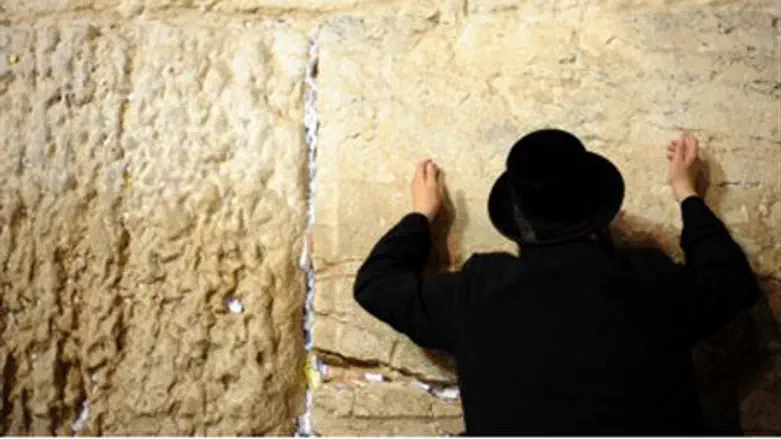
Wednesday’s “Fast of Esther” is in memory of Queen Esther of Persia's risking her life by approaching King Ahasueros, her husband, to save the kingdom’s Jews.
No one, she tells her relative Mordecai when he asks her to intercede for the Jews, is allowed to enter the king's court without receiving an invitation to do so. Anyone uninvited risked death unless the king holds out his scepter to welcome that person. She had also never revealed to the king that she was a Jewess.
Esther asked Mordecai to get all the Jews to fast and pray for her welfare for three days, and they did, prior to her approaching the king in order to launch a series of events that ended with her asking him to save the Jews from the king’s wicked second-in-command, Haman, who had convinced the king that the Jews should be murdered.
Mordecai had told her that despite her being a queen, there was no way she could avoid eventual retribution if she refused to help her endangered brethren. She bravely answered, “Go and gather all the Jews who are found in Shushan and fast for me, and do not eat and do not drink three days, night and day; and I and my maidens will also fast thus. Then I will go to the king and if I am lost, so be it.”
The fast day started at 4.29 a.m. in Israel and ends at 6:04 p.m., followed by the reading of the Biblical book known as the Scroll of Esther, or Megillat Esther. This is the day on which the Jews turned the table on Haman and his loyalists. In Jerusalem and other cities that have a wall from the days of Joshua, the reading is on Thursday night, to commemmorate the Jews in the walled city of Shushan, who were saved a day later.
The aim of fasting is for Jews to remind themselves that HaShem is the true source of their strength.
Wednesday, the fast day is the 13th day of the Hebrew month of Adar, the day that Haman chose by a lottery to exterminate the Jews to satisfy his anger against Mordechai, who raised the orphaned Esther and who refused to bow down to him.
Esther had actually asked the Jews to fast three days during the following month of Nisan, but the fast day is observed the day before the holiday of Purim, the scheduled date of the massacre and on which topsy-turvy events resulted in Haman’s death and the elevation of Mordechai as the king’s new second-in-command.
Another reason for not observing the fast in the following month of Nissan is because it is a month in which fasting is forbidden.
The fast is mentioned in the Scroll of Esther, which states, “And as they accepted upon themselves and upon their children, the matters of their fastings and their cry.”
Conversos, the converted Jews of Spain who kept their religion secret on pain of torture and death during the time of the Inquisition, observed this fast with particular solemnity. They identified with Queen Esther, the Jewess, who, in the words of the Scroll of Esther, "did not reveal her nation's identity or her birthplace", making her a crypto- Jew as they were.